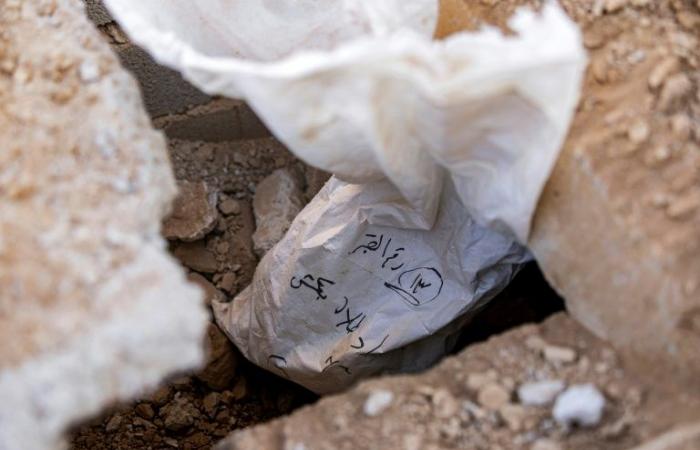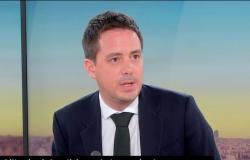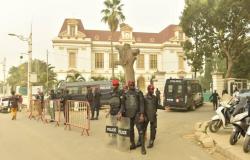Thousands of Syrians from the Alawite minority from which deposed President Bashar al-Assad comes demonstrated Wednesday in several cities in Syria after a video showing an attack on one of their sanctuaries.
These are the first demonstrations by Alawites since the overthrow of Mr. Assad by a coalition of rebels led by the radical Islamist group Hayat Tahrir al-Sham (HTS), which entered Damascus on December 8 after seizing it in 11 days of much of the country.
According to witnesses and the Syrian Observatory for Human Rights (OSDH), thousands of Syrians demonstrated in the coastal towns of Tartus, Jableh, and Latakia in the west of the country, where the Alawite community is very established, a branch of Shiite Islam.
The OSDH confirmed similar gatherings in Banias and Homs, the large central city where the police decreed, according to the official Sana agency, a nighttime curfew from 6 p.m. (3 p.m. GMT) to 8 a.m. (5 a.m. GMT).
Local authorities in Jableh also announced a nighttime curfew.
The anger of the Alawites erupted after a video circulating on social networks showing “an attack by fighters” against an Alawite sanctuary in the Maysaloon district, in Aleppo (north), Syria's second city, according to the OSDH. Five employees of the sanctuary which was set on fire died, according to the NGO.
– “We want peace” –
In Damascus, the Interior Ministry assured that the video was “old” and dated from the capture of Aleppo by the rebels on December 1.
“The aim of circulating such images again is to sow discord among the Syrian people (…),” he added, accusing “unknown groups” of the attack.
The new authorities have increased gestures of assurance towards all minorities in a country traumatized by war.
In Jableh, demonstrators chanted “Alawites, Sunnis, we want peace”, a demonstrator, Ali Daoud, told AFP, calling for “punishment of the attackers”.
Images showed a crowd marching in the street, waving the rebels' independence-era flag.
“No to the burning of holy places and religious discrimination, no to sectarianism, yes to a free Syria,” one sign read.
In Latakia, demonstrators denounced “violations against the Alawite community”, according to Ghidak Mayya, a 30-year-old demonstrator. “For the moment we are listening to calls for calm (…) But the situation could explode.”
After Bashar al-Assad fled to Moscow in the wake of the rebel offensive, members of the Alawite minority welcomed his fall but said they feared marginalization, or worse, reprisals.
According to political scientist Fabrice Balanche, “the Alawites were very close to the Bashar regime”, of which they constituted the “praetorian guard”. He estimates their number at 1.7 million today, or around 9% of the population.
– New mass grave? –
Furthermore, a White Helmets rescuer and an activist indicated that they had discovered a probable mass grave containing the bones of detainees imprisoned by the former government or of fighters killed during the conflict.
An AFP team saw pits lined up next to each other in a wasteland about thirty kilometers northeast of Damascus, forming a trench more than a meter deep.
Several bags were visible in a pit. In a bag, an AFP journalist saw a human skull and bones.
“We think it's a mass grave. We found an open vault with seven bags filled with bones,” rescuer Abdel Rahmane Mawas told AFP.
The fate of tens of thousands of prisoners and missing people constitutes one of the most painful aspects of the Syrian drama, in a country bloodless after 13 years of a devastating war, triggered in 2011 by the brutal repression of pro-democracy demonstrations, and which caused more than 500,000 deaths.
– Destruction of drugs –
On another level, the new authorities set fire in Damascus to stocks of cannabis, boxes of Tramadol and around fifty small bags containing a million captagon pills, an amphetamine produced on an industrial scale under Assad, according to two members of the security forces.
The deposed power was known for producing captagon, transforming his country into a narco-state and flooding markets in the Middle East.
An AFP investigation revealed that Captagon had made Syria a narco-state with an illegal industry worth around 9.6 billion euros.
str-tgg/tp/ila






